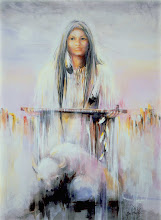After the death of Natasha Richardson, I am again reminded of the brevity of life, the delicate line between life and death. She was in her prime as an actress and a woman, mother of two, a wife, daughter, sister, and friend. We know she's dead froma skiing accident, but we don't yet know the other variables that may have caused her death. We assume she had healh insurance or certainly wealth to pay for any hospital care in that she and her family are all famous moviestars.
Whether it's Natasha skiing in Canada or my son skiing in Nevada, some things transcend fame, wealth, or age; and that is life and death. It is also good health. In the midst of the shock of her sudden death, I was reminded again of something so mundane that many of us take it for granted--health care. Even with the best of health care, Natasha still died. However, we hope she had health insurance so that now the family isn't burdened with extra expense after the death of a loved one.
I am an older woman recently on medicare and social security, and I am reminded regularly of the importance of health insurance. There have been times in my life when I had no health insurance, either because of a pre-existing condition or the cost of premiums was too much for me to afford. I remember my mother facing cancer back in the 60s, and she had no health insurance because of pre-existing conditions.
However, as a mother myself, I'm always more concerned about those closest to me--my family. Though children grow up, marry, and have their own lives, a mother still at times has some of the leftover caretaking from the years of caring for an infant or young child. I think some of it is the feeling one has when you lose a limb but can still feel the arm there. Maybe it's just me or maybe it's all mothers. Maybe it has nothing to do with being a mother at all but is more our human concern for our family, friends or people we don't even know.
We want our family to have health care, the best of health care if any of them is in a ski accident. But without health insurance, the care may be limited. Some hospitals won't even admit you without insurance or if they do, you know you will be looking at a bill in the thousands and thousands of dollars. When children are younger, you have more control over their health care. You make the decision which doctor they will go to. You give them their medicine at the right time and the right dose. You cook for them, and you help them brush their teeth. You see that they sleep through the night. Adult children are now grown; they don't need you to do all these things for them. You know you are supposed to mind your own business, but you worry when they may be one of those millions without health insurance or that they ignore the dental appointments. You know that it's all you can do to take care of yourself and let the other adults in your family take of of themselves. Your sister has to deal with breast cancer. Your aunt had Alzheimer's in her latter years which was most difficult for her husband and son. Your mother-in-law had heart trouble. You own mother died of pancreatic cancer when she was only 52.
But then there's an accident, maybe a ski accident like Natasha's, and you start wondering what would happen if your son had an accident on a ski slope and if there's no health insurance for his care. You say, this can't be America when my son doesn't have health insurance. How could my own mother not have had health insurance during the most painful days of her life, and during the final days of the cancer. Health insurance becomes personal when it's my family. It's more than just an item in the news.
Thursday, March 19, 2009
Subscribe to:
Post Comments (Atom)

No comments:
Post a Comment